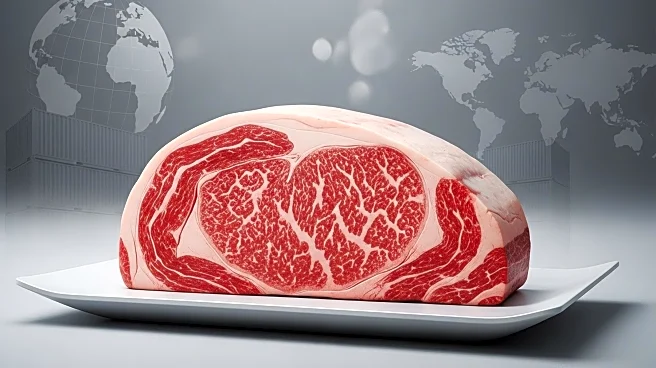What's Happening?
In 2025, Brazil, the world's largest beef exporter, faced a significant tariff increase on its beef exports to the U.S., with an effective rate of 76.4% following an additional 50% levy imposed by the Trump administration. This prompted Brazil to redirect its beef exports to Mexico, which became its second-largest market. By July, Brazil's beef exports to Mexico surged 420% year-to-date, reaching 67,659 metric tons. The Brazilian government is seeking approval for more meatpacking plants to export to Mexico, aiming to increase the number of authorized facilities to 49. This move is part of a broader strategy to diversify export markets and reduce dependency on the U.S.
Why It's Important?
The tariff crisis highlights the importance of supply chain resilience and market diversification in the face of geopolitical risks. Brazil's strategic pivot to Mexico and other markets like China and Southeast Asia demonstrates how exporters can adapt to trade disruptions. The situation underscores the need for global meat exporters to balance short-term market access with long-term geopolitical stability. For investors, Brazil's ability to expand certification capacity and secure new trade agreements illustrates the value of strategic foresight in mitigating trade disruptions.
What's Next?
Brazil is exploring a free trade agreement with Mexico and renewed terms for the 'Package Against Inflation and High Prices' to temporarily suspend tariffs on essential goods. The Brazilian government has also hinted at potential legal challenges to the U.S. tariffs. These efforts reflect a calculated shift towards reducing dependency on any single market, a lesson for global exporters in an era of escalating trade wars.









